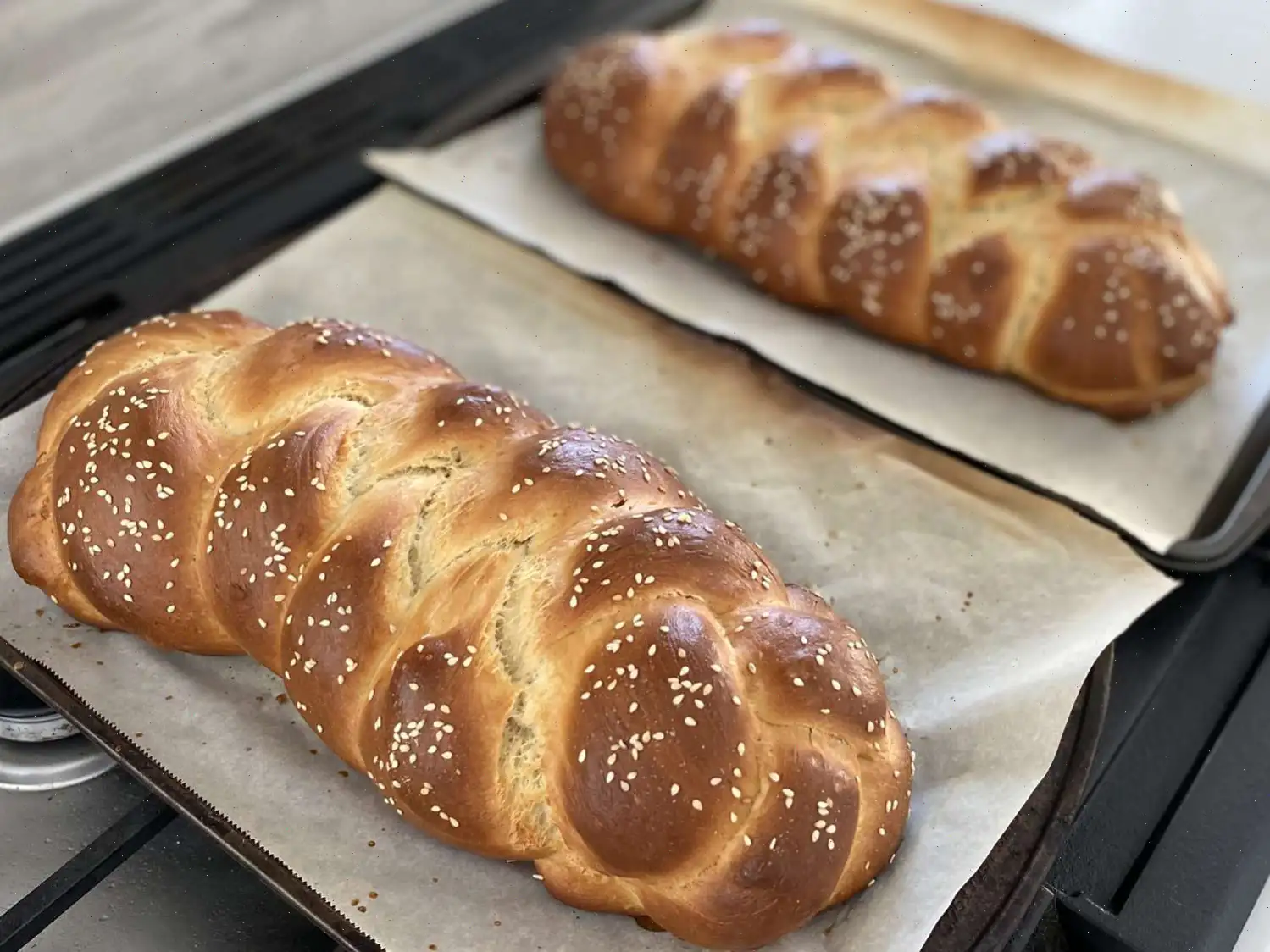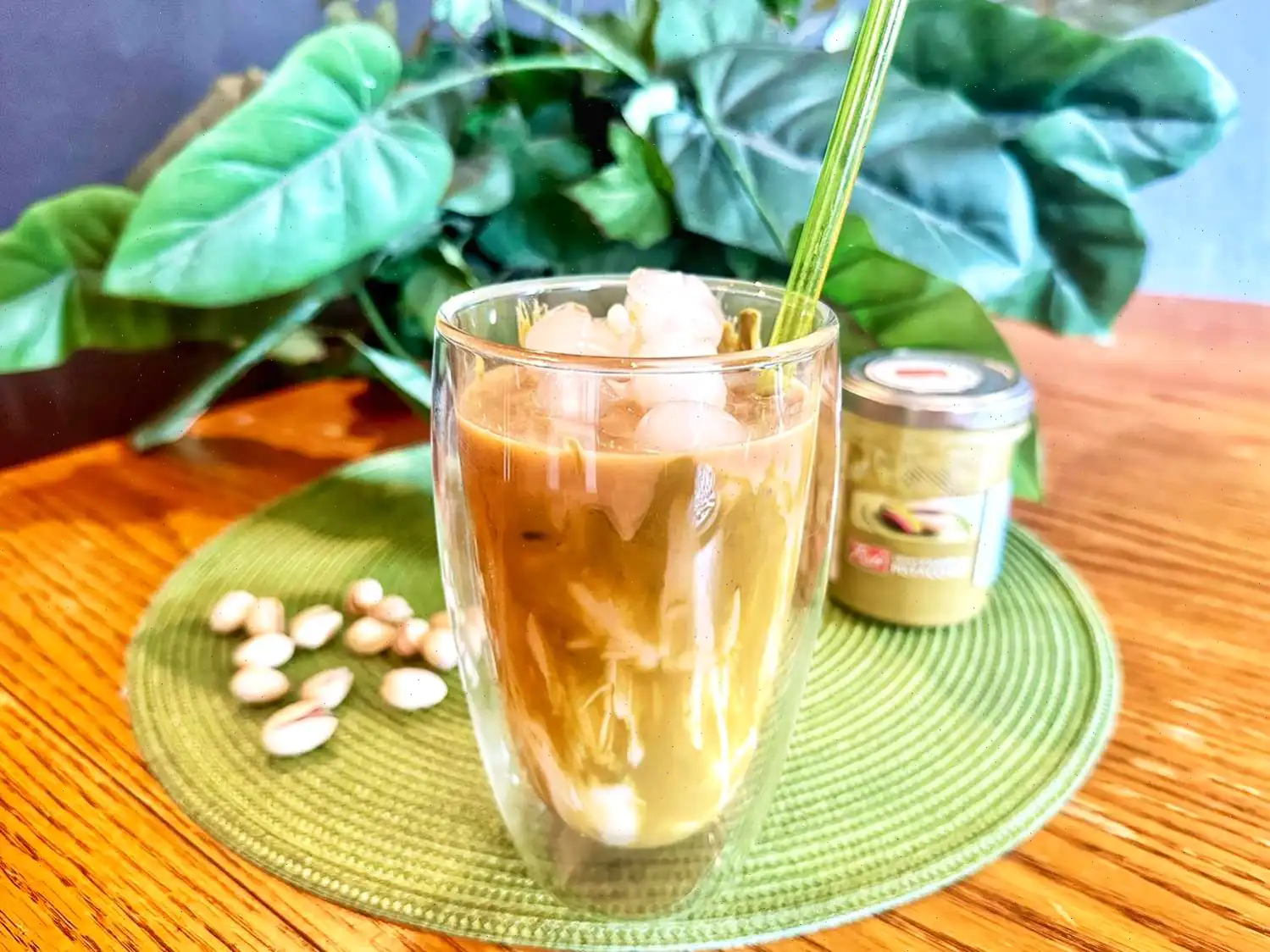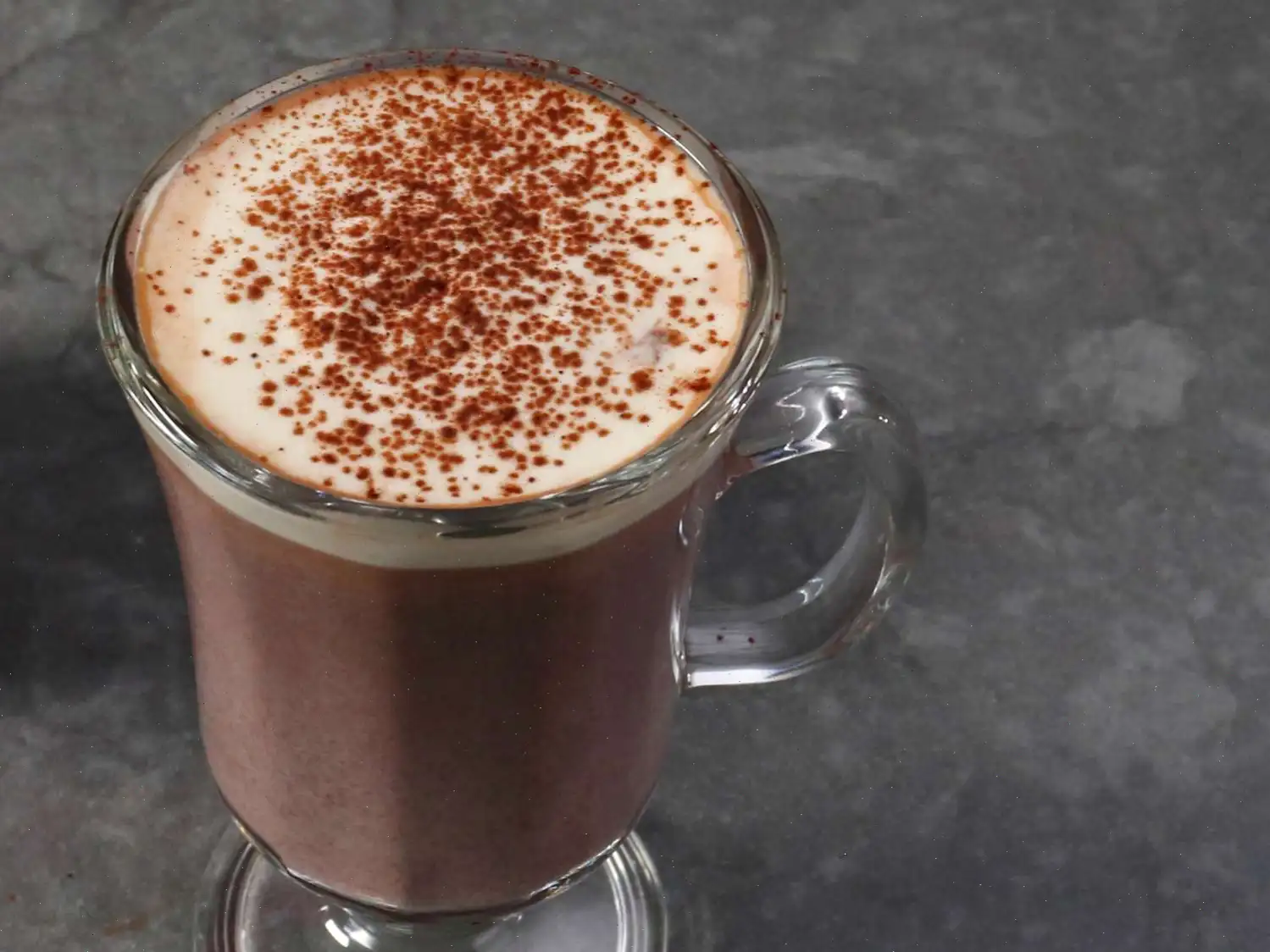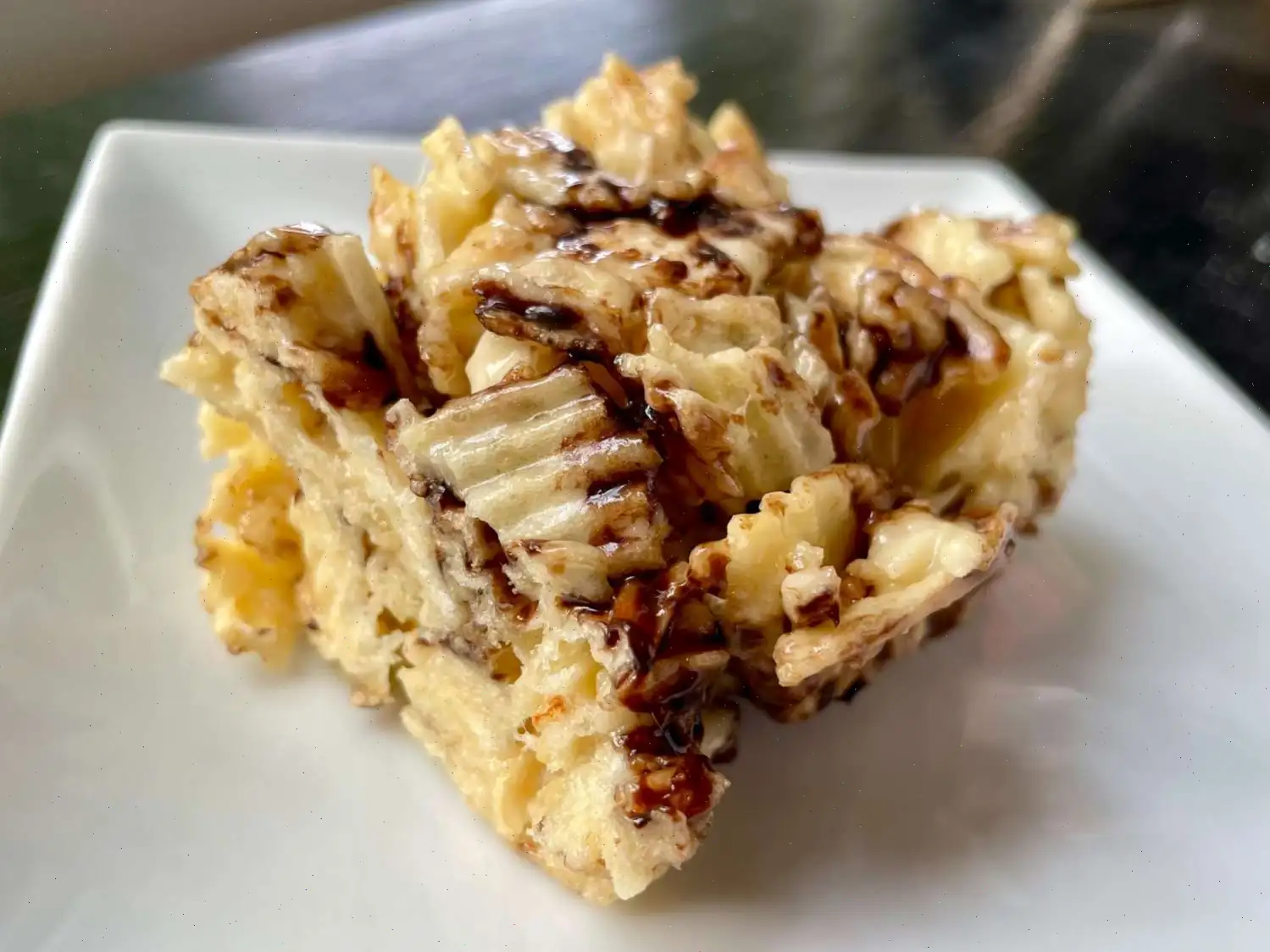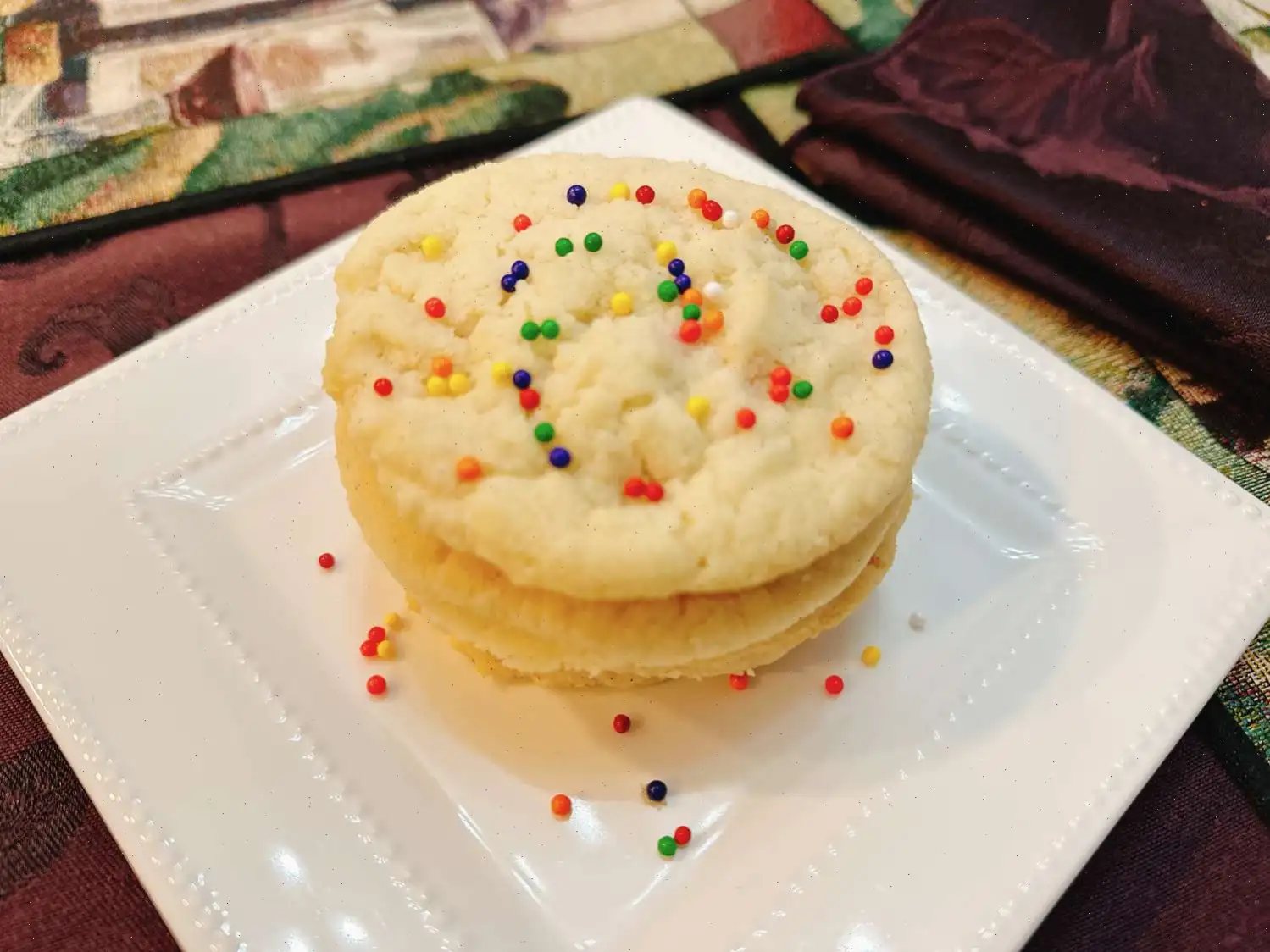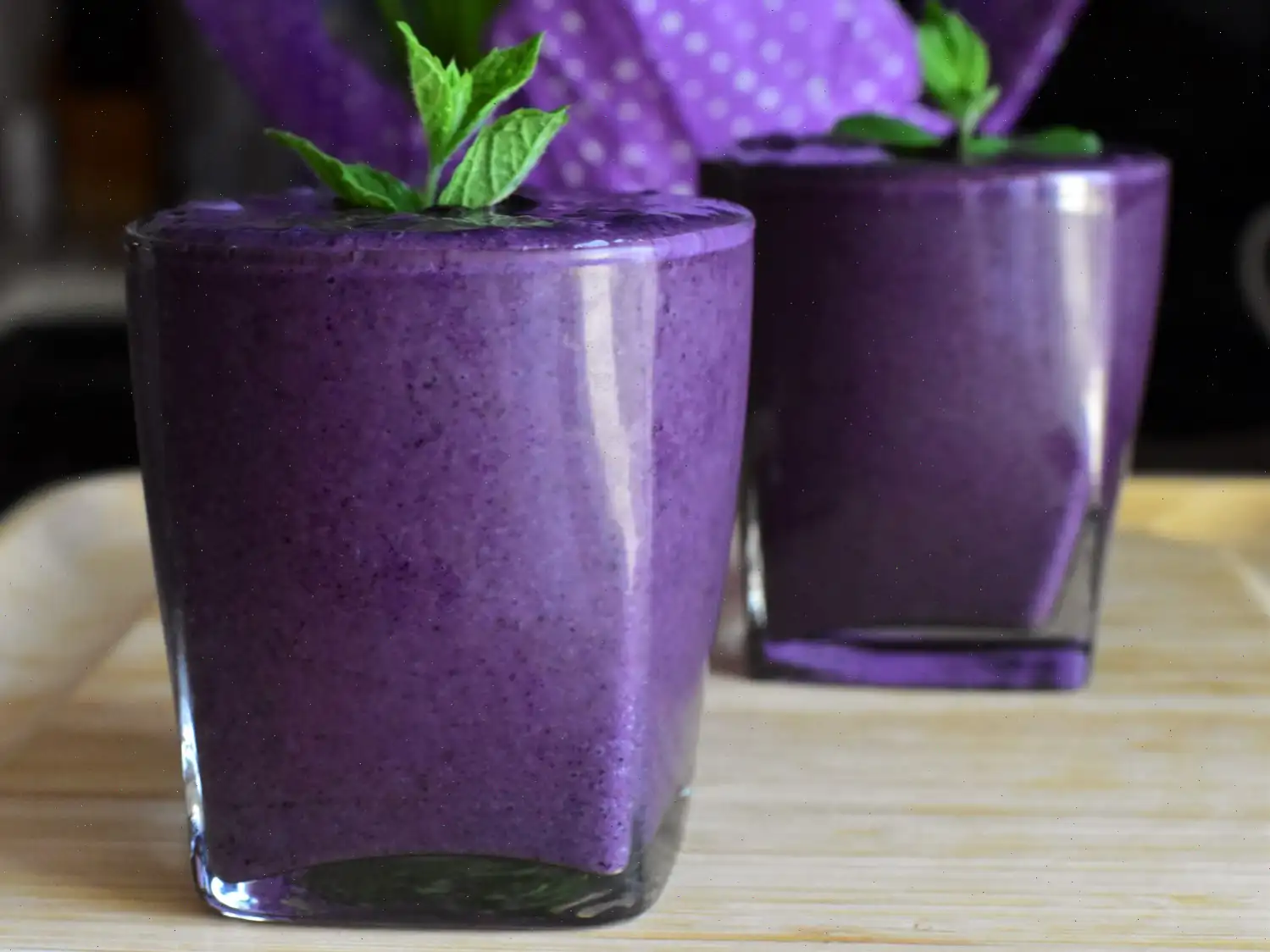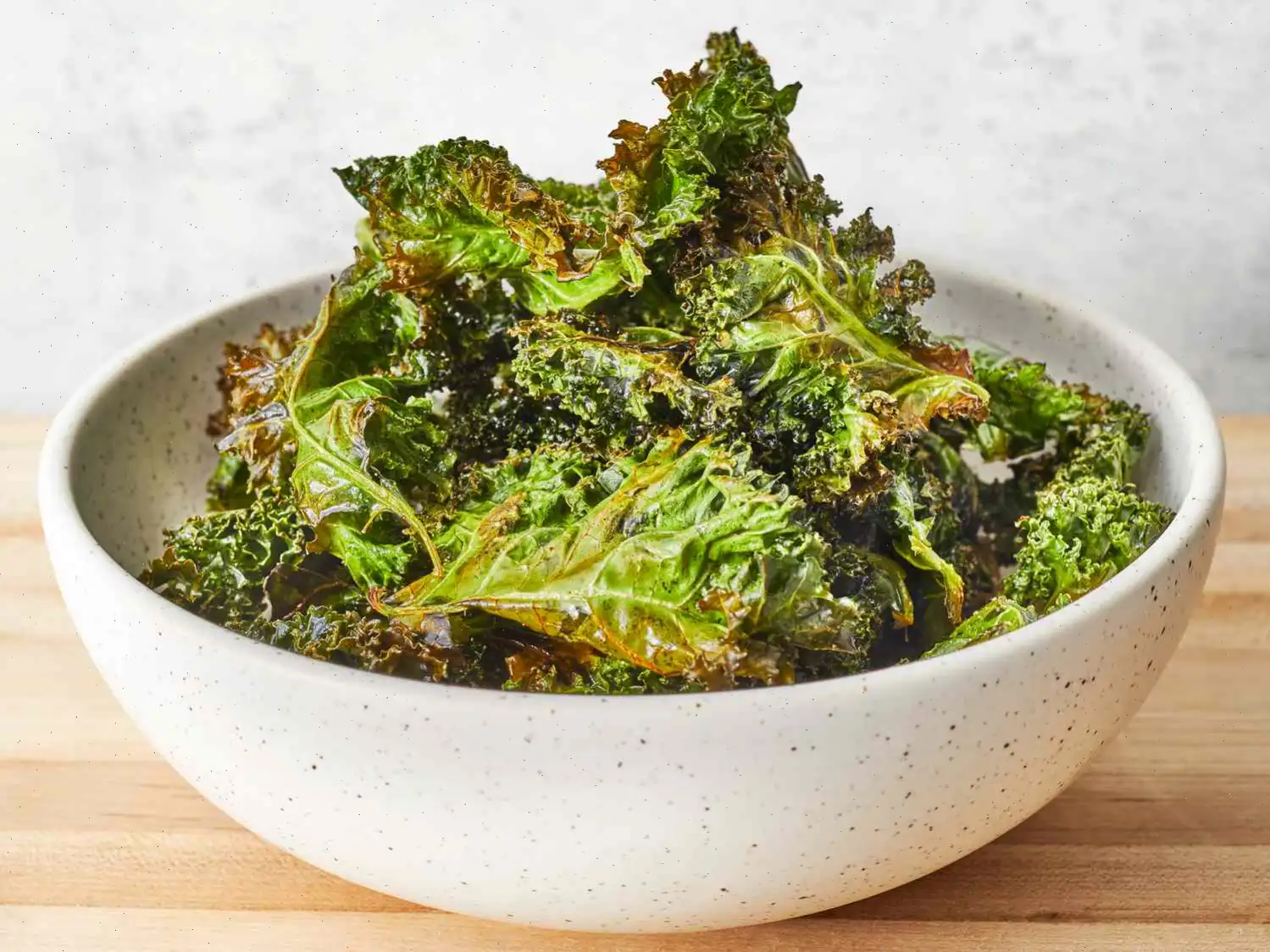
Shabbat Challah Recipe
Ingredients
- 3 tablespoons active dry yeast
- 4 cups warm water
- 2 tablespoons salt
- cup white sugar
- 1 cup vegetable oil
- 4 eggs
- 12 cups all-purpose flour
- 1 egg (for brushing)
- 3 tablespoons water
- teaspoon vanilla sugar or vanilla extract
- cup sesame seeds
Directions
- In a large bowl, sprinkle the yeast over the warm water. Allow it to stand for about 5 minutes to dissolve the yeast.
- Stir in the salt, sugar, vegetable oil, and 4 eggs. Mix until well combined.
- Gradually add the flour, a little at a time. Once the dough becomes too stiff to stir, transfer it to a floured surface.
- Knead the dough for 8 to 10 minutes until it becomes smooth and elastic.
- Place the dough underneath a bowl or cover it with a towel to rise until it doubles in size (about 1 to 1.5 hours).
- Once the dough has risen, punch it down and divide it into 6 or 8 even pieces. This will depend on the shape you want for the challah.
- Take a small piece of dough for the blessing, as per Jewish law, and set it aside.
- Roll the remaining pieces of dough into ropes and then braid them into two loaves, or, if your oven is large enough, create a single large 6-piece braid.
- Alternatively, you can shape each rope into a spiral design. Tuck the ends of the dough underneath the braids.
- Place the shaped dough onto a baking sheet and let it rise again until it slightly puffs up and leaves a small dent when gently pressed with your finger (about 30 to 45 minutes).
- Preheat your oven to 400F (200C).
- In a small bowl, whisk together the remaining egg, 3 tablespoons of water, and vanilla sugar (or vanilla extract).
- Brush this mixture over the tops of the loaves, then sprinkle sesame seeds evenly on top.
- Bake the loaves in the preheated oven for 35 to 40 minutes, or until the bread turns a deep golden brown.
- While the loaves are baking, wrap the small piece of dough that was set aside (for the blessing) in aluminum foil and place it in the oven to burn as an offering.
Nutrition Facts (per serving)
- Calories: 141
- Total Fat: 5g (6% Daily Value)
- Saturated Fat: 1g (4% Daily Value)
- Cholesterol: 16mg (5% Daily Value)
- Sodium: 240mg (10% Daily Value)
- Total Carbohydrates: 21g (8% Daily Value)
- Dietary Fiber: 1g (3% Daily Value)
- Total Sugars: 2g
- Protein: 3g (7% Daily Value)
- Calcium: 13mg (1% Daily Value)
- Iron: 1mg (8% Daily Value)
- Potassium: 47mg (1% Daily Value)
Percent Daily Values are based on a 2,000 calorie diet. Your daily values may be higher or lower depending on your calorie needs.
If you are following a medically restrictive diet, please consult your doctor or registered dietitian before preparing this recipe for personal consumption.
You can listen to this recipe in AI audio format. Simply click the play button below to listen to the content in a format that suits you best. It’s a great way to absorb information on the go!
FAQ about Shabbat Challah Recipe
Comments
Joshua Jackson
12/01/2024 05:50:10 AM
This recipe is fantastic, and the combination of vanilla with the glaze on top is delightful. As someone knowledgeable about Jewish law, I would like to provide a clarification about the Challah offering. This custom is praiseworthy as it dates back to the practice of giving the "Challah" portion to the Cohanim in the ancient Temple of Jerusalem, a tradition that has endured for 2,000 years. In modern times, when the Cohanim may not have the same roles as in the past, there are specific guidelines to follow. A minimum amount of flour is required, around 3 lbs for removal without a blessing and about 5 lbs to recite a blessing. For the precise wording of this blessing, you can refer to Chabad.com. This practice can be applied to various types of dough. The dough, once separated, should be disposed of in a way that renders it unusable and non-kosher. One method is to burn it where no food is being cooked, like directly over a flame on your stovetop or under the broiler (with precautions to prevent setting off the smoke alarm). Alternatively, some Rabbis permit double-wrapping the dough, even a small amount like a large olive, before discarding it. A fascinating aspect of this ritual is that it is one of the three Mitzvahs specifically entrusted to women, highlighting the significant power of prayer. Just as we can pray for our families and those in need during the Sabbath candle lighting, we can also infuse our prayer with spirituality when we separate the Challah portion.
Andrew Ramirez
01/31/2024 03:30:14 AM
This recipe was a fantastic starting point for our initial attempt at making challah, and we were very pleased with the results. I made a few adjustments by substituting whole wheat flour, adding an extra egg, using honey instead of sugar, and replacing the oil with palm shortening. With this recipe, we were able to create a variety of loaves: two seven-plait loaves (700g each), two four-plait loaves (600g each), three woven/round loaves (two at 400g and one at approximately 200g), and one small five-plait loaf (a few hundred grams). I documented our experience in a blog post on Frugal Home and Health on June 6, 2014, with plenty of photos for those interested. I utilized a total of four baking sheets (two stone and two air-bake) and a Pyrex dish for the smaller loaf. Having access to two ovens proved beneficial, as it allowed me to bake multiple loaves simultaneously. For those with only one oven, I recommend either refrigerating some dough for later or freezing it for future use. Some tips based on hindsight: - Due to the large amount of dough produced, using loaf pans can help control the size of the loaves. I found that my oven comfortably accommodates four loaf pans, but this recipe would require about eight smaller pans or six larger ones. Using two racks may be an option, though the bread may not bake as evenly. - If you do not have a convection oven, remember to rotate your loaves for even baking. - While a firmer dough is easier to handle, excessively firm dough may result in denser bread. My slightly sticky dough still produced good results. Additionally, a firmer dough tends to yield taller loaves compared to softer dough. - This challah also makes delicious French toast, which we enjoyed the following day.
Donald Mitchell
05/30/2024 03:20:12 PM
I decided to tweak the recipe to better suit my family's taste preferences. I adjusted the measurements and ended up with 7 mini loaves and 2 rolls of a perfect size for us. I used a mix of white flour and whole wheat flour, along with eggs, rapid rise yeast, and a touch of honey in the water. I baked them in my TFAL convection toaster oven, which I must say, is not the best choice for those looking for a large toaster oven. I followed a careful process of proofing the dough and made sure not to let it over-rise, a mistake I had made in the past that resulted in dry loaves. I learned my lesson from that experience and made sure to monitor the rising time closely this time around. To prevent the bottoms from burning, I adjusted the positioning of my loaves in the oven for the second and third batches, resulting in perfectly golden loaves with a great texture.
Kevin Harris
01/31/2024 11:19:29 AM
Review Rewritten: I was pleasantly surprised by how light and fluffy this bread turned out to be! I halved the recipe after reading other reviews about its size, and it was the right decision. The touch of vanilla in the glaze was a lovely addition. The only thing I might change next time is to skip adding the seeds, as they tended to fall off easily. When braiding the bread, I opted for 4 braids instead of 3 for a more manageable loaf size. If you're new to braiding bread, there are some helpful tutorials on YouTube that make the process very easy. Highly recommend trying this recipe out!
Diane Rodriguez
05/23/2025 03:59:06 PM
I made a smaller version of this recipe and ended up with two huge, bakery-quality loaves. My family absolutely loved it! I devoured it for both dinner and breakfast, cutting off massive chunks each time. I plan on making the full recipe for Thanksgiving, and might even make multiple batches to gift during the holidays. I'll pair it with my homemade Cinnamon Honey Butter, which is a simple mix of butter, sugar, honey, and cinnamon, perfect for putting in adorable jars. It's a budget-friendly gift filled with love!
Nicole Campbell
11/02/2022 11:56:15 AM
I decided to make a smaller batch of this recipe by halving it. Unfortunately, I think the flour I used was too fine, which caused the dough to become extremely sticky. I had to add a significant amount of extra flour, and as a result, the bread turned out bland in taste. Next time, I will be sure not to reduce the amount of sweetener (monkfruit, not cane sugar) to avoid this issue. Despite the outcome, I appreciate the recipe!
Joshua Phillips
03/31/2023 10:44:11 PM
It turned out fantastic! I followed the recipe precisely, but I only made half of the portion.
Helen Williams
12/07/2022 07:18:28 PM
This was my first time making homemade bread, and it was surprisingly easy! The bread smells and tastes fantastic. One small issue was that the suggested bake time was a bit too long - it took less than 25 minutes for me, and my friend also found that he had baked his for too long. Thank you for the recipe!
Robert Moore
08/16/2024 03:55:08 AM
I sweetened this bread with honey and absolutely loved it. I shared it with an elderly man who had recently lost his wife, and many people at the funeral asked him for the recipe. I will definitely be making this bread again soon.


